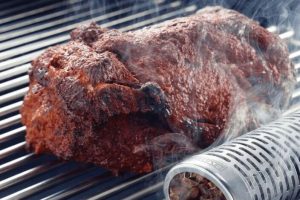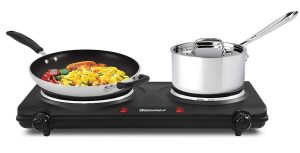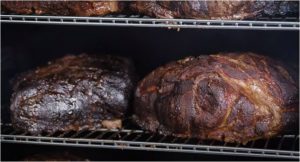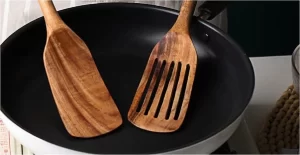Seasoning Smokers: Tips and Tricks
Seasoning a smoker is an essential step every pitmaster should take before using their new or recently cleaned smoker. This process helps to remove any impurities, odors, and residues left from manufacturing or cleaning, preventing them from affecting the flavor of your food. You can season a smoker using a variety of oils, such as vegetable oil, lard, or even olive oil, depending on your preference.
Different types of smokers may require different methods of seasoning, such as a pellet smoker or electric smoker.
Seasoning your smoker also helps to protect it from rust and corrosion, extending its lifespan. To season a smoker, ensure to follow the manufacturer’s instructions and season it before its first use.
Why Do You Season a Smoker?
Smoking meat is an age-old cooking technique that imparts a unique flavor and tenderness to the meat. However, before you start smoking, it is crucial to season your smoker.
Remove Manufacturing Residue
When you purchase a new smoker, it may contain manufacturing residues such as oil, grease, or rust. Seasoning your smoker helps to remove these contaminants, ensuring that your food is safe to eat.
Prevent Rust and Damage
Seasoning your smoker creates a protective layer on the grates and interior surfaces. This layer prevents rust and damage caused by exposure to moisture and air.
Enhance the Flavor
Seasoning your smoker creates a non-stick surface that prevents the meat from sticking to the grates. It also enhances the flavor of the meat by infusing it with the oils and fats from the seasoning process.
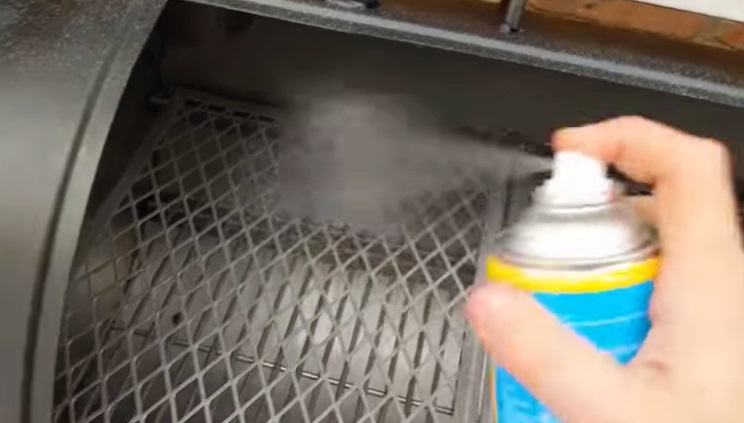
How to Season a Smoker?
1. Preparing the Smoker
Before seasoning your smoker, you need to ensure that it is clean and free of any debris or dust. Start by washing the inside of the smoker with warm soapy water and rinse it thoroughly. Allow the smoker to dry completely before moving to the next step.
2. Choosing the Right Oil
The type of oil you use to season your smoker is crucial. You need to choose an oil that has a high smoke point, such as canola, grapeseed, or vegetable oil. Avoid using olive oil, as it has a low smoke point and can leave a bitter taste on your food.
3. Applying the Oil
To apply the oil, you need to pour a small amount onto a clean cloth or paper towel. Rub the oil onto the grates, the inside of the smoker, and any other metal parts. Make sure to apply the oil evenly and cover all surfaces.
4. Heating the Smoker
Once you’ve applied the oil, it’s time to heat up the smoker. The temperature and duration of the seasoning process vary depending on the type of smoker you have.
5. Seasoning a Propane Smoker
For a propane smoker, set the temperature to 275°F and let the smoker run for 2-3 hours. This process will help to cure the metal and create a non-stick surface.
6. Seasoning an Electric Smoker
If you have an electric smoker, set the temperature to 275°F and let it run for 3 hours. Make sure to add wood chips during the last hour of the process.
7. Seasoning a Pellet Smoker
For a pellet smoker, set the temperature to 350°F and let it run for an hour. This process will burn off any manufacturing residue and create a non-stick surface.
8. Seasoning a Traeger Smoker
Traeger smokers are pellet smokers, so follow the same process mentioned above. Set the temperature to 350°F and let it run for an hour.
9. Seasoning a Masterbuilt Smoker
For a Masterbuilt smoker, set the temperature to 275°F and let it run for 3 hours. Add wood chips during the last hour of the process.
How to Season a Smoker Grill?
If you’ve purchased a new smoker grill, you need to season it before you use it. Here are the steps to follow:
1. Clean the Grill
Before you season your smoker grill, you need to clean it thoroughly. Use a grill brush to remove any debris or ash from the grates and the interior surfaces of the grill.
2. Apply Oil
Next, apply a high smoke points oil such as canola, grapeseed, or vegetable oil to the grates and interior surfaces of the grill.
3. Heat the Grill
Preheat the grill to a temperature of 250-275 degrees Fahrenheit. Allow the grill to heat for at least 2-3 hours to ensure that the oil is fully absorbed and the grill is seasoned properly.
4. Allow to Cool
After the grill has heated for the recommended time, turn off the heat and allow it to cool down completely.
5. Wipe Clean
Once the grill has cooled down, use a clean cloth or paper towel to wipe off any excess oil. Your smoker grill is now ready to use.
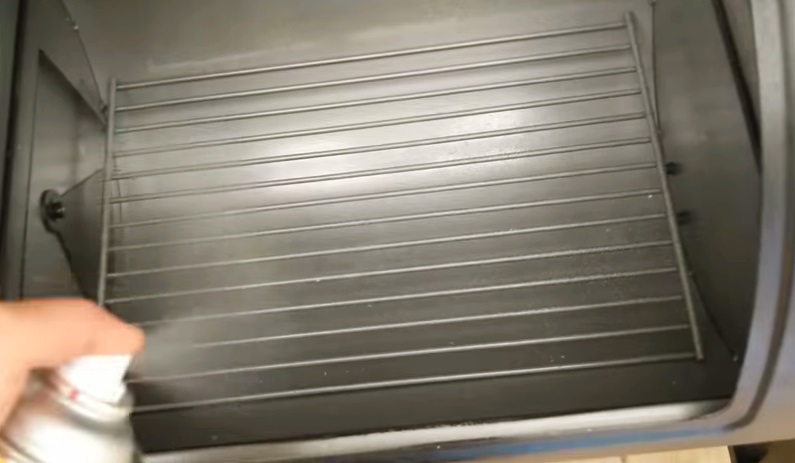
Why is oil necessary for seasoning a smoker?
Oil plays a crucial role in the seasoning process of a smoker. It acts as a barrier between the metal surface of the smoker and the food, preventing rust and other impurities from affecting the taste of the food. Additionally, the oil helps to create a non-stick surface inside the smoker, making it easier to clean and maintain.
What are the best oils to season a smoker?
There are a variety of oils that you can use to season a smoker, each with its own unique properties.
Vegetable oil is a popular choice due to its high smoke point and neutral taste. Lard, which is made from pig fat, is another option that adds a savory flavor to your food. Some people prefer to use olive oil, which has a lower smoke point but imparts a distinct flavor to the food.
When seasoning a smoker with olive oil, it is recommended to use extra-virgin olive oil as it has a higher smoke point than regular olive oil.
What are the differences between the various oils?
The main differences between the oils used for seasoning a smoker are their smoke points and flavor profiles.
Vegetable oil has a higher smoke point than lard and olive oil, making it a better option for high-heat cooking. Lard has a distinct flavor that adds a savory taste to the food, while olive oil imparts a more robust and fruity flavor.
Also, extra-virgin olive oil has a higher smoke point than regular olive oil, making it a better option for seasoning a smoker.
How should you apply the oil to season a smoker?
To season a smoker, you should apply a thin layer of oil to the inside of the smoker using a paper towel or a clean rag. Be sure to coat all surfaces, including the grates and walls of the smoker.
You can then heat the smoker to a high temperature, around 250-300°F, for a few hours to allow the oil to penetrate the metal surface. Once the smoker has cooled down, wipe away any excess oil with a clean rag.
Seasoning an Offset Smoker for the First Time
If you have recently purchased an offset smoker, it is crucial to season it before use. Here’s how to season an offset smoker for the first time.
- Clean the smoker: Before seasoning, the smoker, make sure it is clean. Use a wire brush to remove debris, and then wash the interior surfaces with hot, soapy water.
- Apply oil: Apply a coat of cooking oil to the interior surfaces of the smoker. Use a paper towel to spread the oil evenly.
- Heat the smoker: Preheat the smoker to 250°F, and let it run for at least two hours. This process will help to cure the oil, creating a non-stick surface.
How Long Does It Take to Season a Smoker?
The time it takes to season a smoker depends on the type of smoker and the method used. Typically, it takes between two to four hours to season a smoker. Here are some factors that can influence seasoning time.
- Type of Smoker: Different types of smokers require different seasoning times. For example, vertical smokers require less time to the season compared to offset smokers.
- Temperature: The temperature at which the smoker is heated can also affect the seasoning time. A higher temperature can shorten the seasoning time.
- Method: The method used to season the smoker can also affect the time it takes. The most common method is the oil and heat method, which takes around two to four hours.
How to Season a Vertical Smoker?
- Clean the smoker: Like all smokers, a vertical smoker must be cleaned before seasoning. Remove any debris and wash the interior surfaces with hot, soapy water.
- Apply oil: Apply a coat of cooking oil to the interior surfaces of the smoker. Use a paper towel to spread the oil evenly.
- Heat the smoker: Preheat the smoker to 250°F, and let it run for at least two hours. This process will help to cure the oil, creating a non-stick surface.
How Long to Season a Smoker?
The duration of the seasoning process varies depending on the type of smoker you have. As a general rule, you should season your smoker for at least 2-3 hours.
However, some smokers may require longer seasoning times, so make sure to check the manufacturer’s instructions.
Maintaining the Seasoned Smoker
After you’ve seasoned your smoker, it’s essential to maintain it properly to ensure that it continues to work efficiently. Regular cleaning is essential to prevent any buildup of dirt, grease, or debris that can affect the quality of your smoke.
- Clean the smoker after each use. Use a brush or scraper to remove any food particles and grease from the grates and the inside of the smoker.
- Empty the ash pan regularly. Ash buildup can affect the airflow and temperature of your smoker.
- Check the seals and gaskets. Make sure that they are tight and free of any cracks or leaks.
- Store your smoker in a dry place. Moisture can cause rust and damage to your smoker.
FAQs
Can I use any oil to season my smoker?
No, you need to use an oil with a high smoke point, such as canola, grapeseed, or vegetable oil.
How often should I season my smoker?
You only need to season your smoker once before the first use. After that, regular cleaning and maintenance are essential to keep it in good condition.
Can I season a smoker in cold weather?
Yes, you can season a smoker in cold weather, but it may take longer to heat up to the desired temperature.
How do I know when my smoker is seasoned?
You’ll know that your smoker is seasoned when it has a dark brown, almost black coating on the grates and the inside of the smoker.
Can I season a smoker with wood chips?
No, you should not season a smoker with wood chips. The seasoning process requires a high temperature, which can cause the wood chips to catch fire and damage your smoker.
Conclusion
Seasoning a smoker is an essential step in preparing it for use. It helps to remove any manufacturing residue, prevents rust and damage, and improves the overall quality of your smoked food. Whether you have propane, electric, pellet, Traeger, or Masterbuilt smoker, the process of seasoning is relatively straightforward. Just follow the steps outlined in this article, and you’ll be ready to start smoking your favorite foods in no time.
